The worship of Devi Durga in Bengal is celebrated in a very unique way. It is believed that Durga Maa comes to her home along with her four children, Ganesh, Karthik, Lakshmi, and Saraswati. She stays with us for five days and then returns to Kailash.
But do you know, there is another story behind this Durga Puja, known as Akal Bodhan?
Akal Bodhan means the untimely awakening of Devi Durga.
This name comes from the Bengali Ramayan, Krittibasi Ramayan.
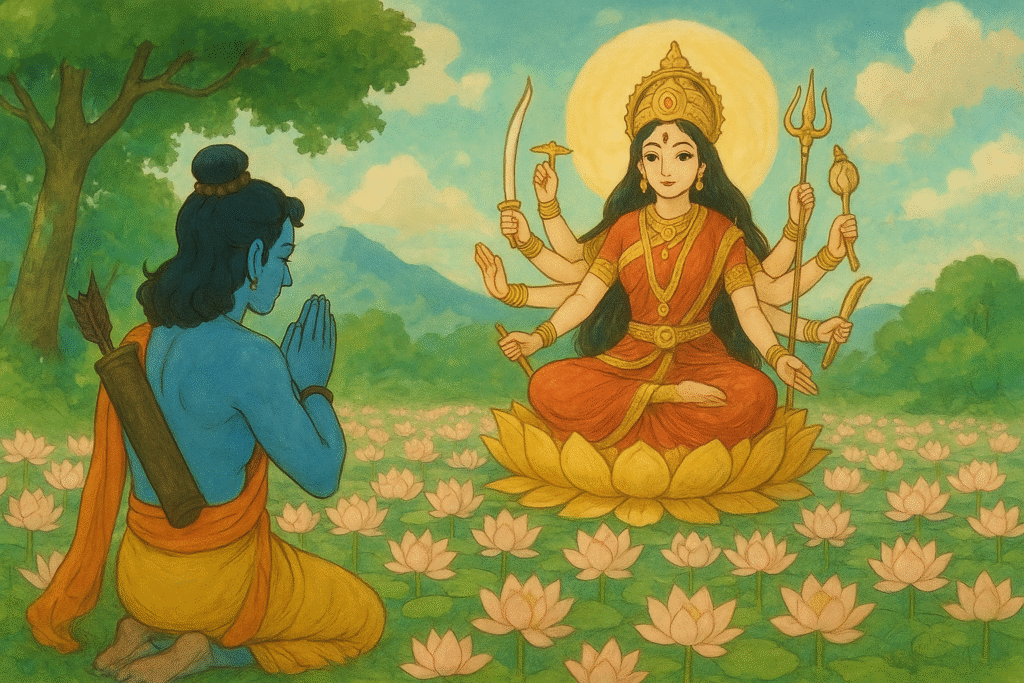
According to the Bengali Ramayana, when the battle between Ram and Ravan was at its peak, Ram came to know that Ravan was a great devotee of Lord Shiva.
At that moment, Vibhishan, Ravan’s brother, advised Ram to worship Devi Durga. He suggested that Ram offer her 108 lotuses to awaken her blessings. However, Ram had only 107.
To prove his devotion, he decided to offer one of his own eyes, which were often compared to blue lotuses. Maa Durga, deeply moved, appeared and blessed him with victory.
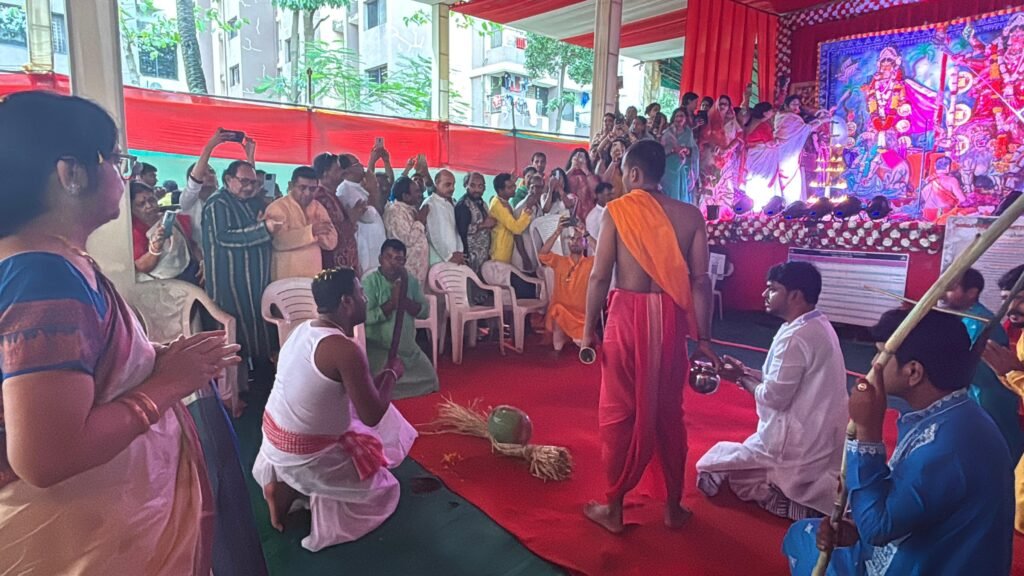
Our celebrations begin on Panchami, the fifth day, and continue till Dashami (Dussehra), the tenth day, filled with devotion, rituals, and cultural richness. One special ritual is offering 108 lotus flowers to Devi Durga.
We also offer bhog to Maa Durga, which includes khichuri, luchi, and a variety of Bengali sweets. These simple offerings carry the taste of love, togetherness, and tradition.
We celebrate this festival not only with rituals but also with cultural programs like dance, music, folk tales, poetry, and much more.
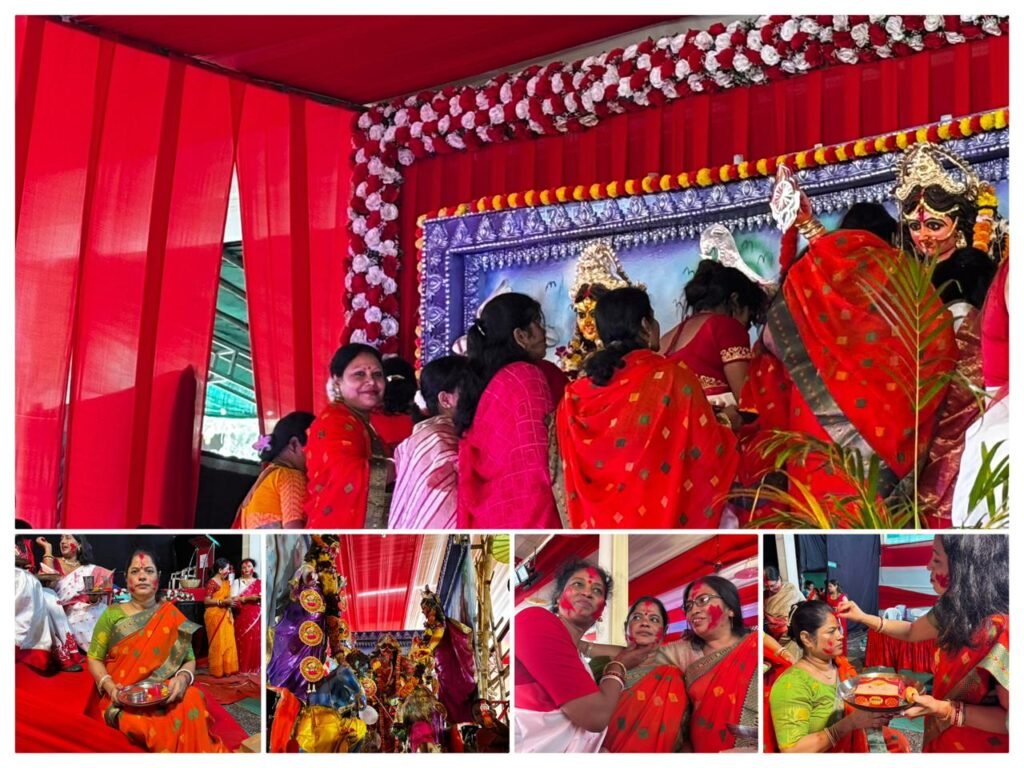
Sindoor Khela is a lively ritual where married women smear each other with sindoor, celebrating Maa Durga’s blessings, happiness, and strength.
For Probashi Bengalis, Durga Puja keeps us connected to our roots. We come together like one big family, celebrating with tradition, joy, and the blessings of Maa.
Today, Durga Puja is celebrated not only in Bengal but across the world. Every year, Bengali communities create beautifully themed pandals and idols with devotion and creativity, for example, in Silvassa, Dadra and Nagar Haveli and Daman and Diu, where the festival brings together people from different backgrounds.
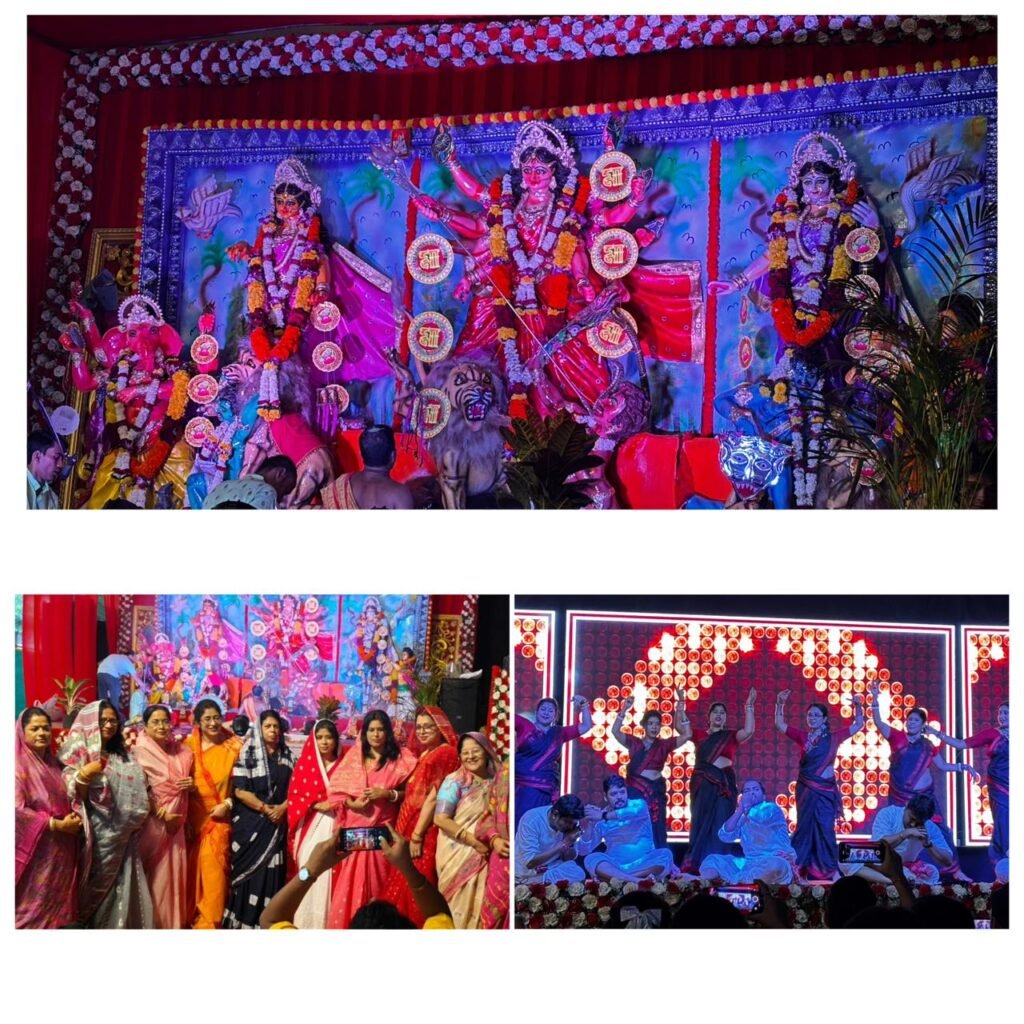
Here, we have various Bengali associations, and one of them is DPCS (Durga Puja Committee, Silvassa).
For Bengalis, Durga Puja is a feeling of homecoming, when Maa arrives for five days, fills our hearts with joy, and leaves again as our beloved mother.
We wait all year for her return. When Puja ends, we hold on to the promise: “Ashche bochor abar hobe”, it will happen again next year, Maa will be back.
Dugga Dugga!

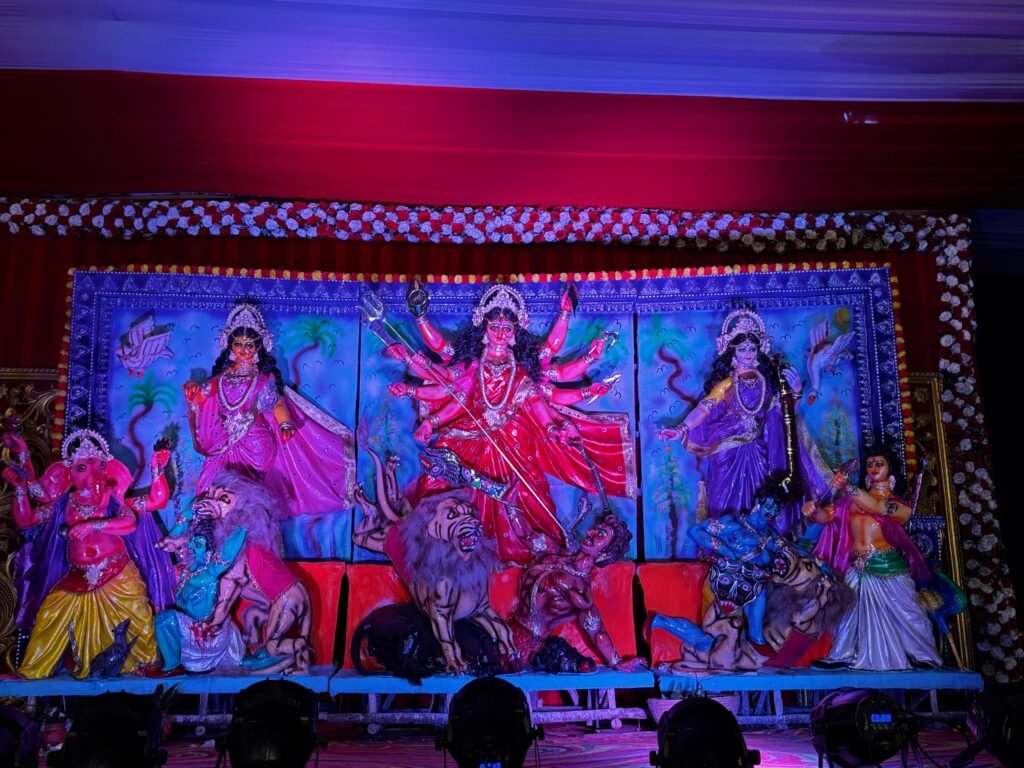




One Response
❤️❤️❤️